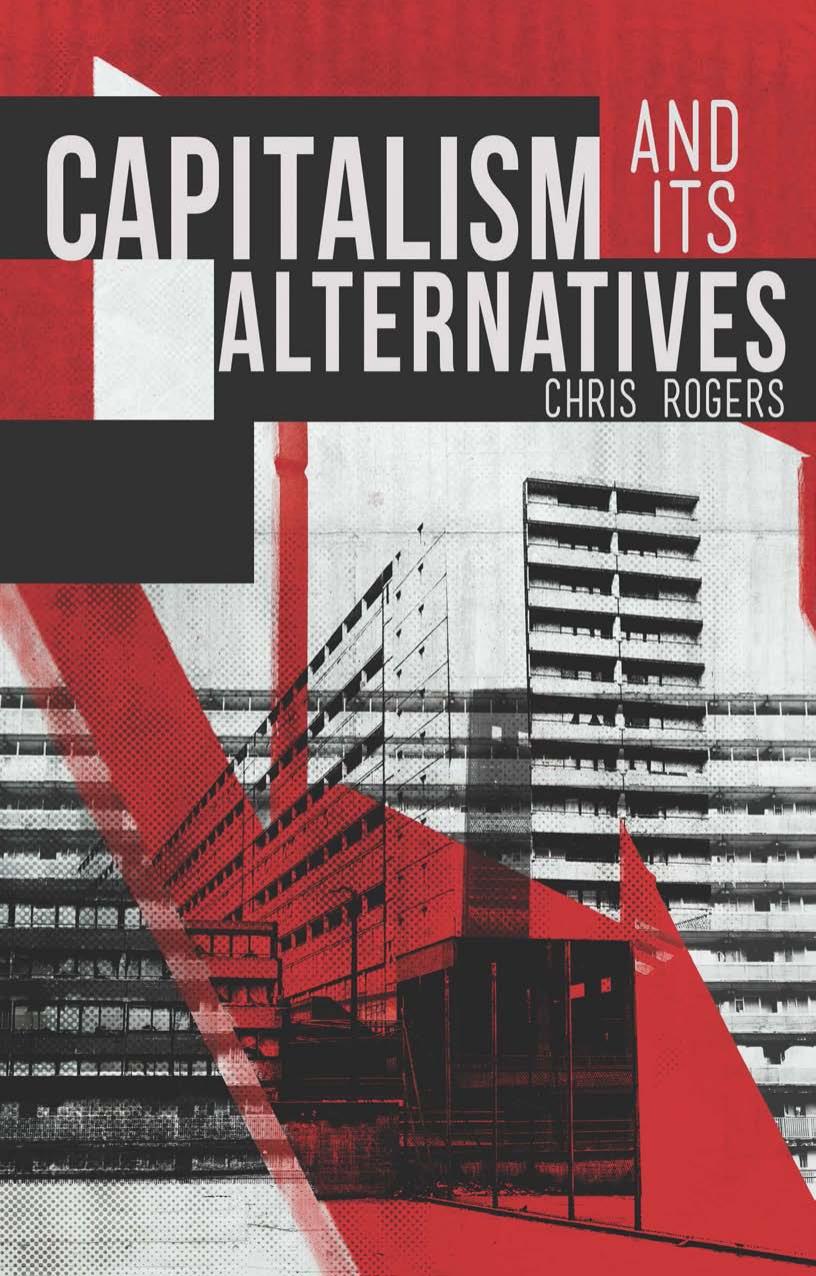Capitalism and Its Alternatives by Chris Rogers

Author:Chris Rogers
Language: eng
Format: epub, pdf
Publisher: Zed Books
Published: 2014-10-11T16:00:00+00:00
A cooperative alternative to capitalism
In Chapter 1 we saw how Marx believed that the way in which wealth was created under capitalist social relations is fundamentally dependent on the exploitation of one class of people by another. Under these conditions, those in possession of the means of production are able to pay those who have nothing to sell but their labour-power less than the value of the commodities they create, and keep the surplus for themselves. It was also shown in Chapter 1 how the competitive logic of capitalism acted to drive down wages and replace living labour with machinery, contributing to the impoverishment of the working classes. Chapter 2 then linked this competitive logic and the impoverishment of workers to the evolution of crises in capitalism, and suggested that as a result of these dynamics capitalist social relations should be viewed as being in a constant state of crisis.
This provides a rationale for another kind of alternative to the prevailing form of capitalism, in which competition and the quest for profit are not the primary driving forces of social and economic relations. In principle, this would have the potential to mute the crisis dynamic Marx envisaged in capitalist social relations, and in the process alleviate the exploitation on which capitalism depends for the expansion of value. For one group of eighteenth-century socialists, sometimes called utopian socialists, typified by the writings of Robert Owen, this could be achieved through cooperative (or mutual) association in which production, distribution and exchange would be organized with civic and social goals in mind as well as pecuniary gain. In Marxian terminology, a far greater emphasis would be placed on the creation of use-values than under the prevailing capitalist form of organization.
Robert Heilbroner (2000: 107) described the cooperative community that Robert Owen founded at New Lanark in Scotland as ‘one spot in Britain [that] shone like a beacon through the storm’ of the Industrial Revolution. In the community at New Lanark, standards of living were much higher than in the large industrial towns elsewhere in Britain; there were ‘neat rows of workers’ homes with two rooms in every house; here were streets with the garbage neatly piled up awaiting disposal’ (ibid.: 107). Young children did not work in the factories, but ‘Instead of running wild and fierce through the streets, they were found by the visitors to be fast at work and play in a large school house’ (ibid.: 108). Following from these early endeavours of cooperative association, it is possible to see an alternative to capitalism established over 150 years ago that survives in the form of the contemporary cooperative movement.
Like Marxist analysis, utopian socialism stems from a critique of the prevailing form of social and economic organization (Goodwin 1978: 13); as Robert Owen wrote in the preface to his second essay in A New View of Society, ‘It is […] an important step gained when the cause of evil is ascertained. The next is to devise a remedy for the evil, which shall create the least possible inconvenience’ (Owen 1991: 3).
Download
Capitalism and Its Alternatives by Chris Rogers.pdf
This site does not store any files on its server. We only index and link to content provided by other sites. Please contact the content providers to delete copyright contents if any and email us, we'll remove relevant links or contents immediately.
| Elections & Political Process | Ideologies & Doctrines |
| International & World Politics | Political Science |
| Public Affairs & Policy | Specific Topics |
| United States |
The Secret History by Donna Tartt(19092)
The Social Justice Warrior Handbook by Lisa De Pasquale(12191)
Thirteen Reasons Why by Jay Asher(8912)
This Is How You Lose Her by Junot Diaz(6889)
Weapons of Math Destruction by Cathy O'Neil(6281)
Zero to One by Peter Thiel(5802)
Beartown by Fredrik Backman(5756)
The Myth of the Strong Leader by Archie Brown(5509)
The Fire Next Time by James Baldwin(5448)
How Democracies Die by Steven Levitsky & Daniel Ziblatt(5219)
Promise Me, Dad by Joe Biden(5154)
Stone's Rules by Roger Stone(5088)
A Higher Loyalty: Truth, Lies, and Leadership by James Comey(4964)
100 Deadly Skills by Clint Emerson(4927)
Rise and Kill First by Ronen Bergman(4790)
Secrecy World by Jake Bernstein(4753)
The David Icke Guide to the Global Conspiracy (and how to end it) by David Icke(4720)
The Farm by Tom Rob Smith(4514)
The Doomsday Machine by Daniel Ellsberg(4490)
